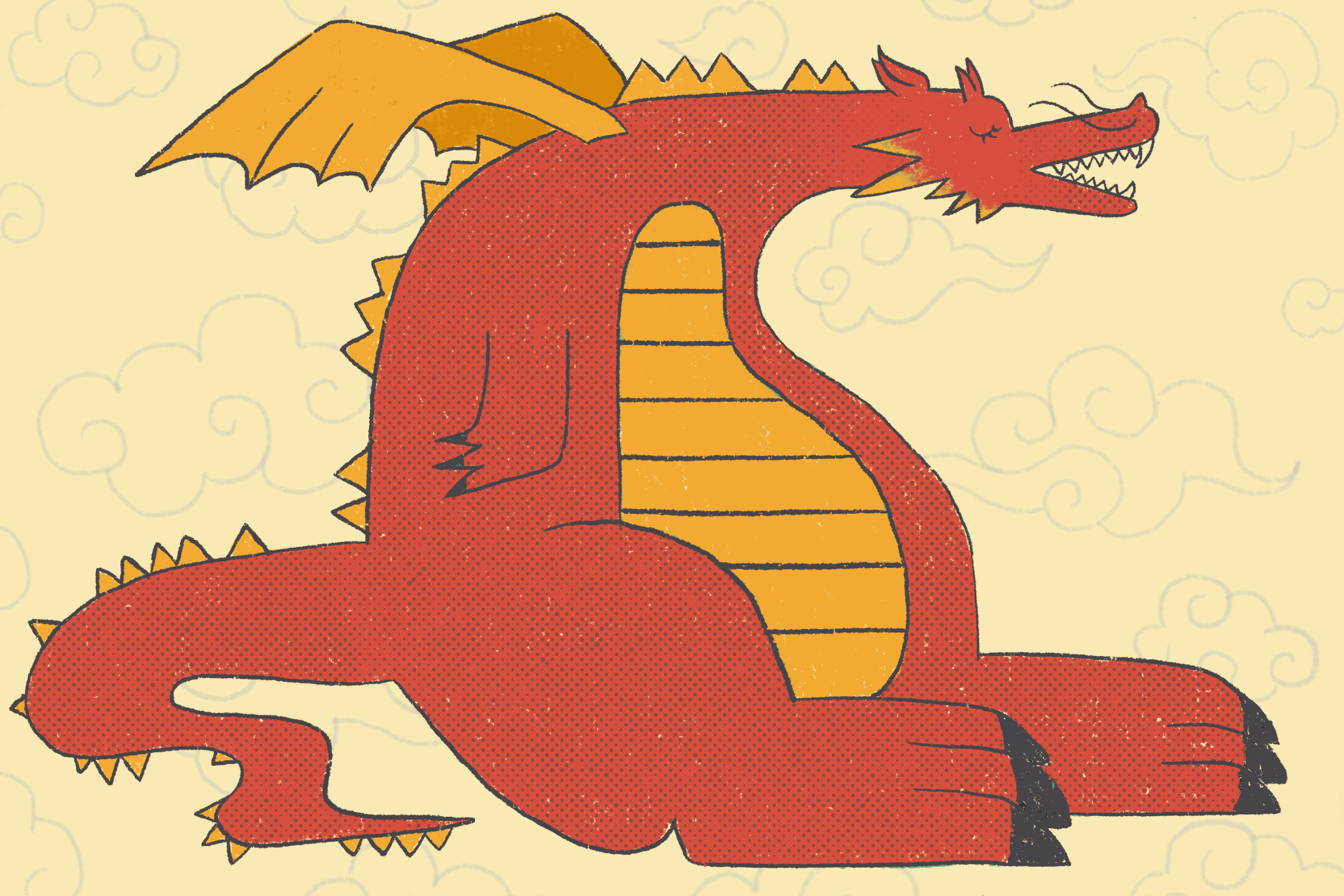The male gaze defines Chinese women as adorable and docile lotus blossoms–that is, subservient and shy women created for the pleasure of men. Make no mistake, though: There are many powerhouse feminists in Chinese mythology who have reiterated for centuries that Asian women are not play-things. Mythological women such as Bai Mudan and Chinese goddesses Nuwa and Mazu combat objectification and redefine age-old narratives and stereotypes.
Many scholars highlight examples of female tragedies in Chinese stories and myths, yet there seems to be little known about the triumphs of women. Though history rewrites itself, this does not necessarily encourage similar plotlines; rather, it is possible to reevaluate how ancient Chinese mythological women may represent sexual liberation, opening gateways for Chinese women to challenge their place in a sexist world.
China’s most known virtues are, of course, Yin and Yang. Yin is an energy associated with femininity and passivity, whereas Yang is assertive and masculine. Chinese cosmology narrates that Yin and Yang spawned from the turbulence during the creation of the universe. The two energies eventually restore balance with one another in the center of Earth, passing down the belief that everyone needs a balance of both energies inside of them.
Many people may not realize that the idea that Yin is “negative and inferior” to Yang’s “positive and superior” essence is not universal within Chinese philosophy. Myths during different dynasties reflect different connotations towards Yin and Yang’s opposite and gendered concepts.
Taoism (also known as Daoism), popularized during the Tang dynasty, asserts that Yin and Yang are complementary equals rather than opposing forces. Yin and Yang compose the Tao, an energy guide which helps people lead a life of spiritual harmony and flux with nature. In Taoism, nothing can complete itself without another complimentary energy, iterating the value in both energies.
In contrast to Taoism, Chinese Confucianism holds Yang essence over Yin and applies this to the organization of class and moral compasses. Confucianism aims to pursue a morally “good” life which praises Yang over Yin. Popular during China’s Han dynasty, Confucianism was not only a way of life but a systematic hierarchy of class in China. Due to the solidification of Confucianism through institutional class, history textbooks may often highlight this politicized and sexist ideology more than philosophical ones. Therefore, people may be limited to learning exclusively about sexist Chinese virtues, promoting a limited scope of China’s feminism.
Fortunately, there are a number of feminist stories in Taoism which provide a different side to Chinese female figures. Inspecting the empowered stories of courtesan (or prostitute in some renditions) Bai Mudan , sea goddess Mazu and marriage goddess Nuwa demonstrates patterns of female empowerment in many Tang Dynasty characters and deities. This is not to say the majority of Taoist stories are feminist, but they definitely open discussion on how current Chinese women can take these tales and change the reputation of their divination.
The story of Bai Mudan has multiple variations, most notably from the ancient text Journey to the East by Wu Yuan Tai. In most narratives, she triumphs over the arrogant immortal and scholar Lu Dongbin, also one of the Eight Chinese Immortal gods.
Lu Dongbin, who arrogantly relished his predominantly yang essence, had a sexual relationship with the beautiful and respected Bai Mudan where he absorbed her yin essence by resisting ejaculation, leaving her with nothing. She eventually discovered he was immortal and was determined to seek revenge. With help from the supreme Queen Mother of the West (who protects Taoist women), she learned the tricks of how to make him ejaculate and when doing so, absorbed all of his yang and her yin essence back, becoming immortal herself.
Many believe she is synonymous with the only female goddess of China’s Eight Immortals, which include Lu Dongbin as well. Other variations depict Bai Mudan as a prostitute who, after finding out Lu Dongbin is extracting her yin essence, seeks revenge but not immortality. He ends up admitting his mistakes, apologizing to her after losing his energy.
After reclaiming her femininity and power through sex, Bai Mudan has become a staple goddess in Chinese mythology and culture who seduces men, proving herself to be no fool the way Lu Bongdin perceived her to be. She harnesses her sexual energy not as a promiscuous and disrespected “harlot”, but as a symbol of feminine divinity, taking back control of her sexual relationships and desires.
For the goddesses Mazu and Nuwa, their stories are equally as playful yet satisfactory for those who despise the sleazy men that either disrespect or disappoint them.
Nuwa is a goddess and protector of humankind, sometimes credited with birthing the first humans herself. Her sexual triumph appears when the Shang-Dynasty King Zhou wishes to thank her for giving him sacred stones during his coronation. Do not be fooled, as he expresses “appreciation” in distasteful execution.
It’s said that King Zhou was so enamored by her beauty that he wrote an erotic love confession all over the walls of her sacred temple, prompting Nuwa to send three vixens in the form of beasts to seduce him and torment him during the next two decades of his reign. Though she was not able to dethrone him right away, she opted for a slow and painful demise, which may be more satisfying anyways.
King Zhou’s downfall was characterized by a plethora of orgies and increased taxes on citizens, ensuring an unruly and chaotic leadership over a constantly displeased populace. Nuwa teaches that women truly do not have to stand for any disrespect nor be compliant in sexually offensive messages, even if the excuse is “it was meant to be a compliment.” Of course, this is a hyperbole and metaphoric tale, but influential nonetheless.
The southern sea goddess of the ocean and protector of fishermen Mazu has one of the most delightful and well respected stories as well. With over 10 different names, a cult religious following and her own festival, Mazu is revered by many communities. She is also an attractant for tourists who often visit her temples in Taiwan and Hong Kong.
Historical myths describe two demons named Qianliyan and Shunfeng’er both vying for her affection, as is so with many of the goddesses in Chinese mythology. Mazu cuts them a deal and says she’ll marry the one who can defeat her in combat; ironically, Mazu already knows she is more skilled than them and defeats them both easily with her martial art skills. In a playful twist, she decides to befriend and recruit them as her guardian angels.
Nuwa and Mazu are confident and assertive authority figures who do not let anybody question their respect and have no problem using physical force to affirm it, refuting stereotypes that all Asian women are subservient. In a world where Asian women are made easy targets of violence, it is important to have history that encourages Asian women to resist such damaging realities as the norm.
Digging deep into China’s empowering myths are reminders to embrace the might of feminist themes despite an overt focus on China’s misogyny. In a world where Mulan, a heroine who spends most of her time in masculinity, is the staple of feminine empowerment, referencing the history of no nonsense deities and commoners provides an alternative viewpoint not only to gender roles, but how they relate to sexual autonomy.
Nuwa and Mazu maintain their feminine vigor and equality by harnessing their yin energy as a path to revenge, making fools out of their ignorant suitors and demonstrating that Chinese women, though sexually objectified, can twist this situation around in an authoritative way.
Rather than choose between two men in a love triangle out of fear of being lonely in love, Mazu encourages one to find confidence without male validation. Instead of accepting unsolicited and sexual messages from young men, Nuwa conveys the power in resisting and avenging one’s self-respect, perhaps a lesson to be used in today’s dating app culture.
Chinese women can begin rewriting their image by reclaiming their divine feminine power in history, teaching others outside of their culture that not every Chinese text usurps yin energy. Many actually teach one to fight for Yin’s sacred part of the soul. It is time to create endless possibilities for new narratives, Bai Mudans, Nuwas and Mazus alike.

















